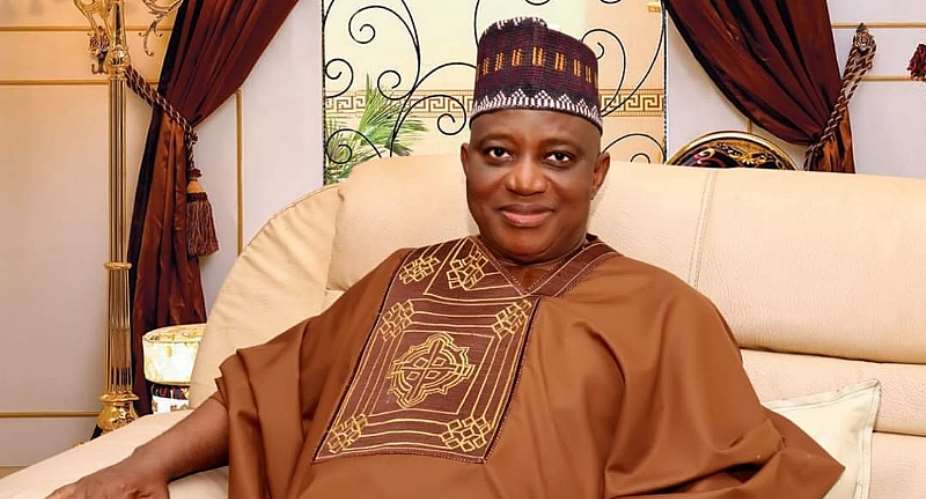Neither the austerity measures adopted by the Shagari administration during the Second Republic nor the structural adjustment programme of Babangida brought as much hardship to Nigerians as much as the nine months old administration of Bola Ahmed Tinubu.
Nigeria, Africa's most populous country and largest economy, has faced significant economic challenges in recent years, with issues such as inflation, unemployment, and sluggish growth impacting the livelihoods of its citizens. In light of these challenges, the government and stakeholders in Nigeria have implemented various strategies to overcome economic hardship and pave the way for sustainable development.
The Tinubu administration has not been able to stabilize the economy since inception, and for that reason scathing criticisms have been leveled against the government. It is for this reason this piece focuses on the strategies to address the declining standard of living, the spiralling inflation and the anomie that pervades the land.
1. Diversification of the Economy:
One of the key strategies to overcome economic hardship in Nigeria has been the diversification of the economy. The country has historically been heavily reliant on oil revenues, making it vulnerable to fluctuations in global oil prices. In response, the government has initiated efforts to diversify the economy by promoting sectors such as agriculture, manufacturing, and services. This diversification strategy aims to reduce Nigeria's dependence on oil and create new sources of growth and employment opportunities.
2. Investment in Infrastructure:
Another crucial strategy to overcome economic hardship in Nigeria has been the investment in infrastructure development. Inadequate infrastructure, such as roads, ports, and power supply, has been a major impediment to economic growth and development in the country. To address this challenge, the government has embarked on infrastructure projects aimed at improving connectivity, transportation, and energy supply. These investments are critical for enhancing productivity, attracting investment, and driving economic growth in Nigeria.
3. Promotion of Small and Medium Enterprises (SMEs):
Supporting small and medium enterprises (SMEs) has been a key strategy to overcome economic hardship in Nigeria. SMEs play a vital role in job creation, income generation, and poverty reduction in the country. The government has implemented various initiatives to support SMEs, such as providing access to finance, skills development, and market linkages. By empowering SMEs, Nigeria aims to stimulate entrepreneurship, boost economic resilience, and foster inclusive growth.
4. Fiscal and Monetary Policy Reforms:
Fiscal and monetary policy reforms have also been instrumental in addressing economic challenges in Nigeria. The government has implemented measures to enhance fiscal discipline, improve revenue mobilization, and contain public spending. In addition, the Central Bank of Nigeria has adopted monetary policy measures to stabilize the exchange rate, control inflation, and promote price stability. These policy reforms are critical for restoring macroeconomic stability and investor confidence in Nigeria.
5. Social Investment Programs:
Social investment programs have been instrumental in mitigating the impact of economic hardship on vulnerable populations in Nigeria. Initiatives such as the National Social Investment Program (NSIP) have provided support to low-income households, unemployed youth, and women entrepreneurs through cash transfers, skills training, and access to finance. These programs aim to reduce poverty, inequality, and social exclusion, while promoting inclusive development in Nigeria.
In summation, Nigeria can implement a range of strategies to overcome economic hardship and foster sustainable development. By diversifying the economy, investing in infrastructure, supporting SMEs, implementing fiscal and monetary policy reforms, and expanding social investment programs, Nigeria aims to navigate economic challenges, promote growth, and improve the well-being of its citizens. Moving forward, continued commitment to these strategies, along with effective policy implementation and stakeholder collaboration, will be essential to overcoming economic hardship and building a resilient and prosperous future for Nigeria. As most Nigerians regret voting for Tinubu, the punitive macro-economic policies of the administration need to be reversed.
Abdulrahman John Idumange
writes from Port Harcourt





 We saved $57.9million from procurement of new verification devices, registration...
We saved $57.9million from procurement of new verification devices, registration...
 Ejisu by-election: Aduomi is a betrayer – Ahiagbah
Ejisu by-election: Aduomi is a betrayer – Ahiagbah
 Dumsor: I’ll be in police custody if I speak, I vex — DKB
Dumsor: I’ll be in police custody if I speak, I vex — DKB
 We'll give daily evidence of Akufo-Addo's supervised thievery from our next gene...
We'll give daily evidence of Akufo-Addo's supervised thievery from our next gene...
 Asiedu Nketia crying because they've shared the positions and left him and his p...
Asiedu Nketia crying because they've shared the positions and left him and his p...
 Mahama's agenda in his next 4-year term will be 'loot and share' — Koku Anyidoho
Mahama's agenda in his next 4-year term will be 'loot and share' — Koku Anyidoho
 If you're president and you can't take care of your wife then you're not worth y...
If you're president and you can't take care of your wife then you're not worth y...
 Foreign Ministry caution Ghanaians against traveling to Northern Mali
Foreign Ministry caution Ghanaians against traveling to Northern Mali
 GHS warns public against misuse of naphthalene balls, it causes newborn jaundice
GHS warns public against misuse of naphthalene balls, it causes newborn jaundice
 Our education style contributes to unemployment - High Skies College President
Our education style contributes to unemployment - High Skies College President
